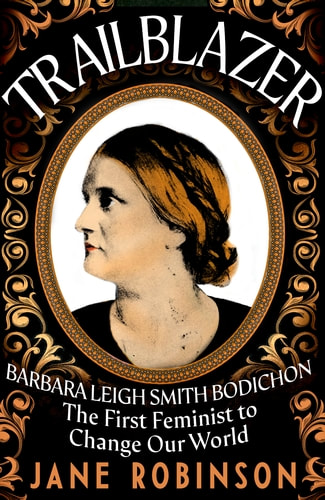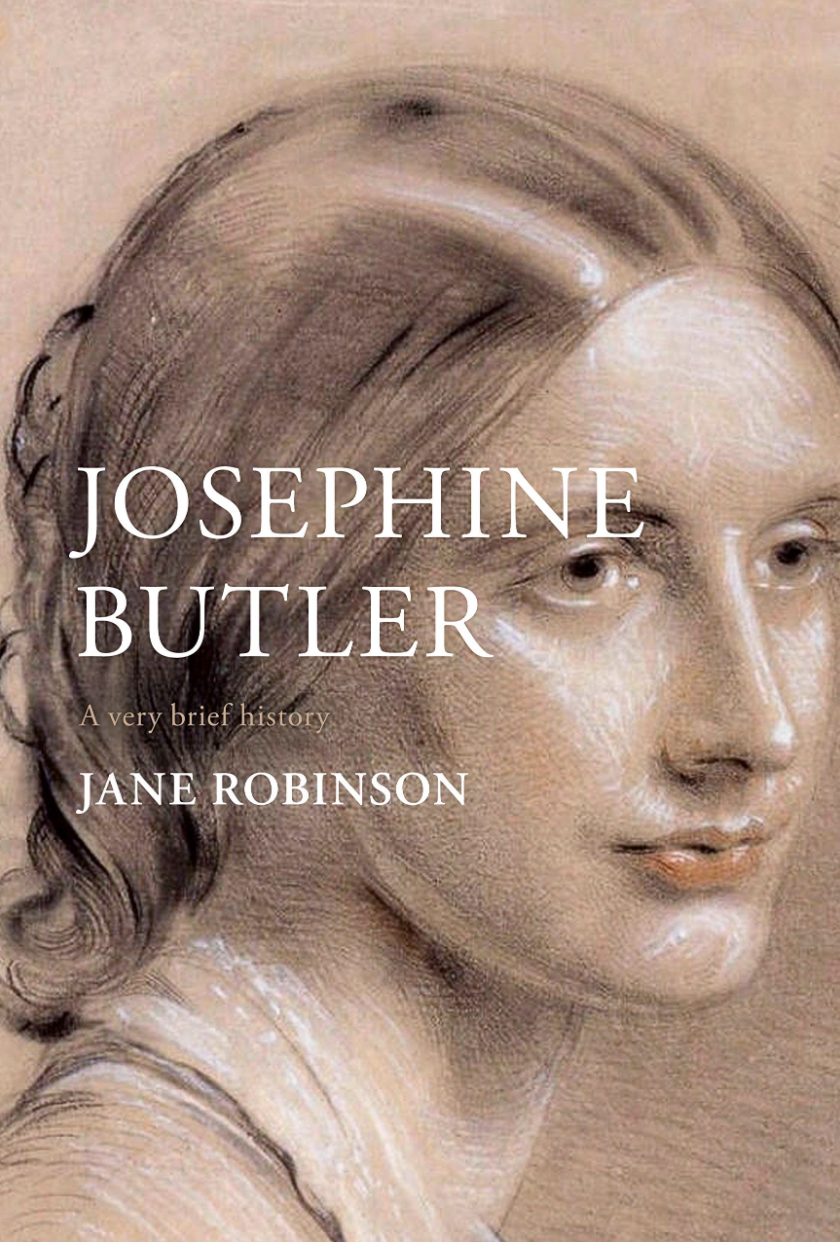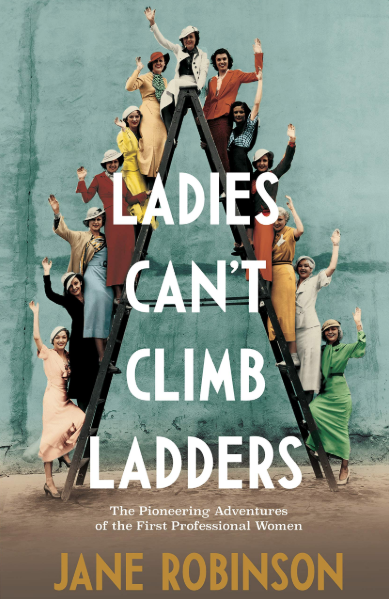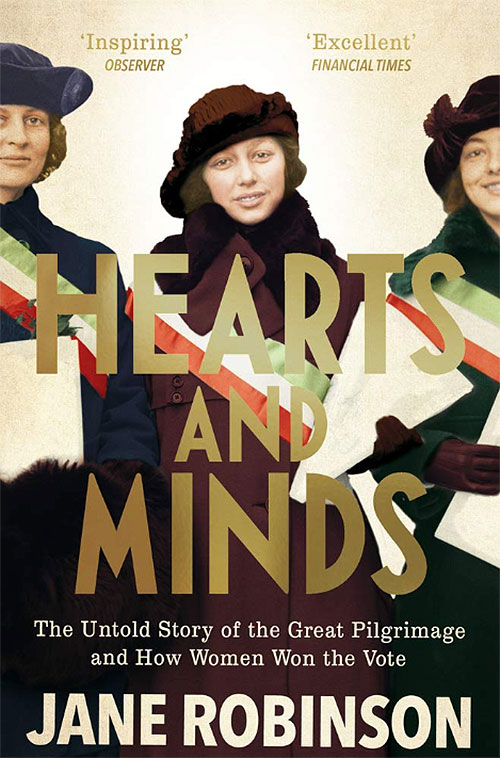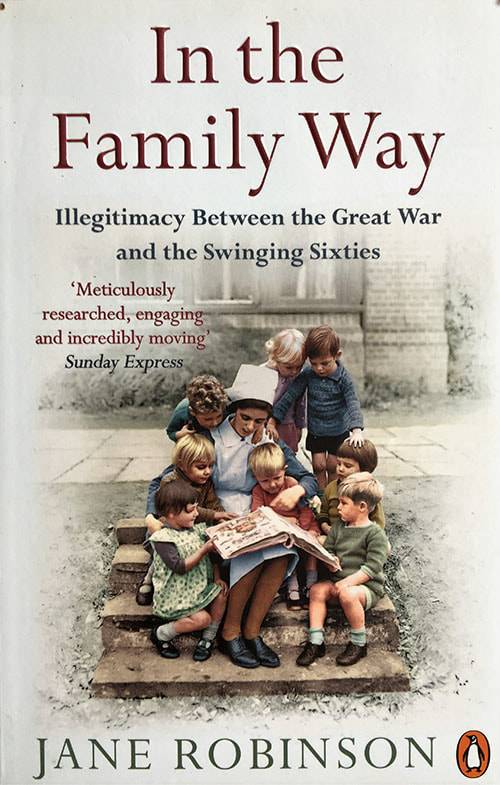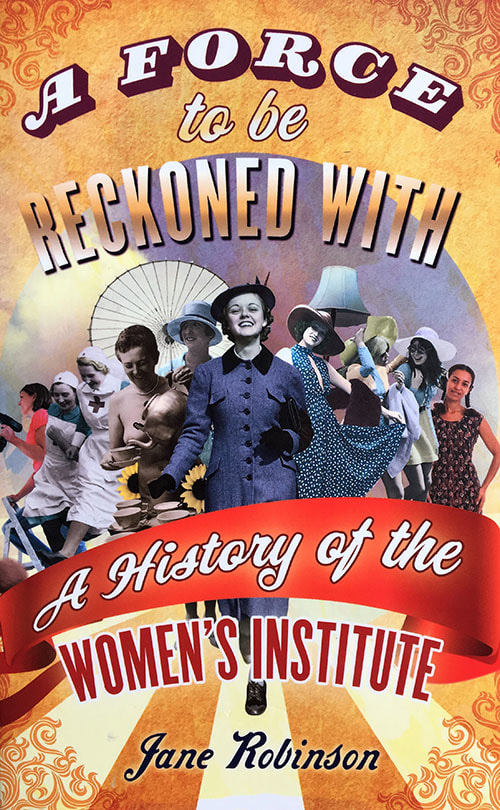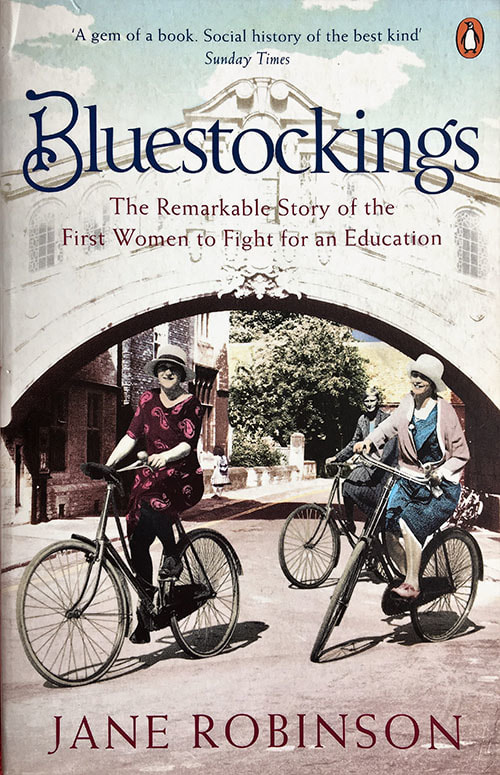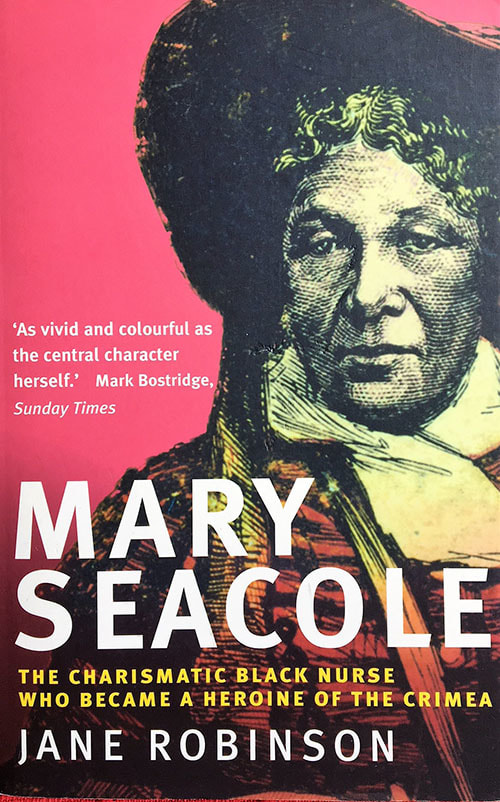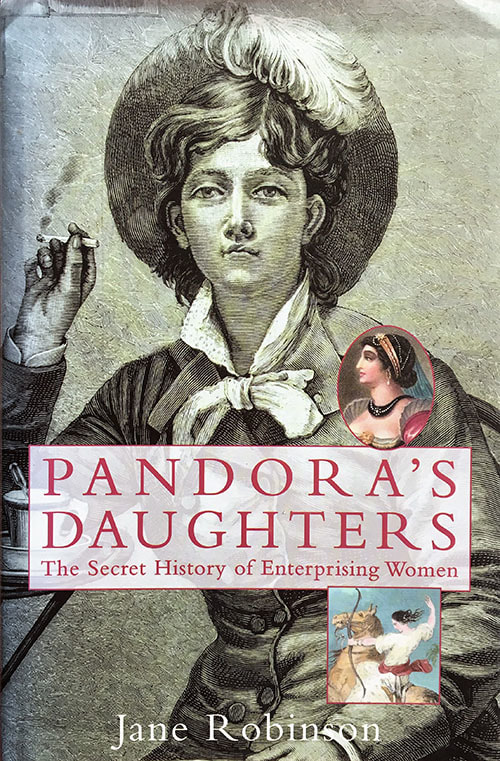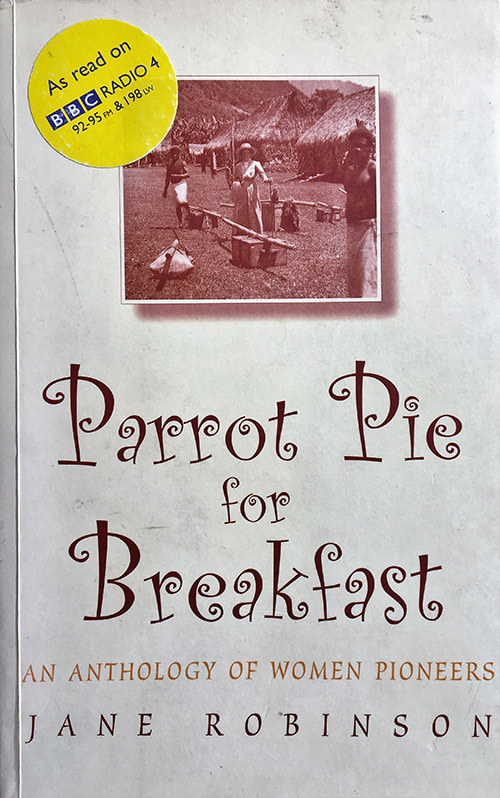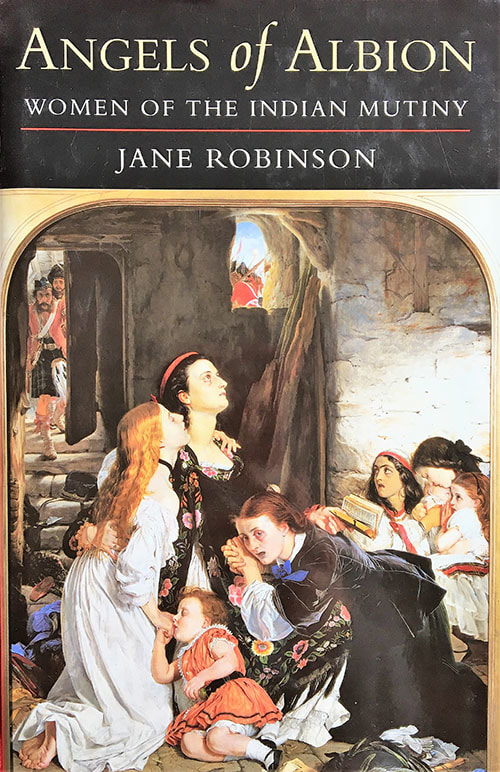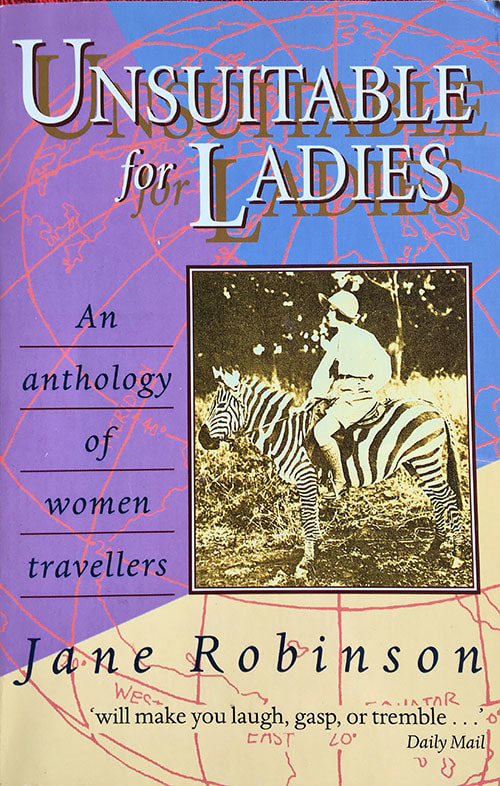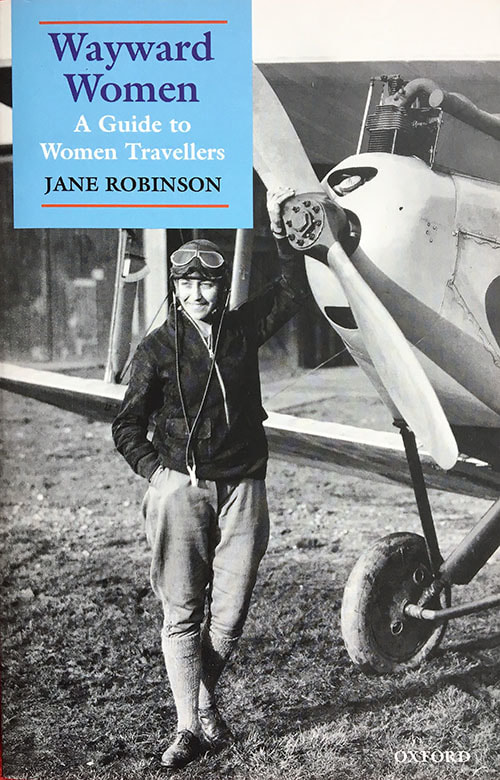Bibliography
|
"Trailblazer" Barbara Leigh Bodichon: A Biography (2024) You have probably not heard of Barbara Leigh Smith Bodichon but you certainly should have done. Name any 'modern' human rights movement, and she was a pioneer: feminism, equal opportunities, diversity, inclusion, mental health awareness, Black Lives Matter. While her name has been omitted from too many history books, it was Barbara that opened the doors for more famous names to walk through. And her influence owed as much to who she was as to what she did: people loved her for her robust sense of humour, cheerfulness and indiscriminate acts of kindness. This is a celebration of the life of the founder of Britain's suffrage movement: campaigner for equal opportunity in the workplace, the law, at home and beyond. Co-founder of Girton, the first university college for women, a committed activist for human rights, fervently anti-slavery, she was also one of Victorian England's finest female painters. Jane Robinson's brilliant new book shines a light on a remarkable woman who lived on her own terms and to whom we owe a huge debt. Lively and well-researched... Jane Robinson is brilliant at putting the women back into history and her biography... is as entertaining as it is necessary... I can't think of a better [role model] for today... |
|
Josephine Butler. A Brief History (2022)
When Josephine Butler died in 1906, she was declared by Millicent Fawcett to have been 'the most distinguished Englishwoman of the 19th century'. With impassioned speeches and fiery writing, Butler's campaigns for women's rights, and against the iniquity of double sexual standards, shook Victorian society to its core and ignited a force for change that has shaped modern Britain. But how did the physically frail wife of a schoolmaster become a leading social reformer, with a vibrant legacy that continues to affect our lives to this day? "The story of a woman who defied what was expected of her to make a difference - told in a wonderfully engaging way" Helen Pankhurst. |
|
Ladies can't climb ladders
The pioneering adventures of the first professional women. (2020) Described by critics as 'cracking', 'stirring' and 'a celebration', this book focuses on the lives of pioneering women forging careers in the fields of medicine, law, academia, architecture, engineering and the church. In a startling study into the public and private worlds of these unsung heroines, I shed light on their desires and ambitions, and how family and society responded to this emerging class of spirited working women. |
|
Hearts and Minds.
The Untold Story of the Great Pilgrimage and How Women Won the Vote. (2018) 1913: the last long summer before the war. The country is gripped by suffragette fever. Some admire these impassioned crusaders; others are aghast at the thought of giving any female a vote. Meanwhile, hundreds of women are stepping out on to the streets of Britain. They are suffragists: non-militant campaigners for the vote, on an astonishing six-week protest march they call the Great Pilgrimage. Rich and poor, young and old, they defy convention, risking jobs, family relationships and even their lives to persuade the country to listen to them. The Great Pilgrimage transformed the personal and political lives of women in Britain for ever. 'A story of huge courage and, most of all, immense female camaraderie... meticulously researched... a fascinating and inspiring read.' |
|
In the Family Way.
Illegitimacy Between the Great War and the Swinging Sixties. (2015) Few of us today appreciate or understand the shame that an illegitimate child once brought on families - unmarried mothers were believed immoral, single fathers feckless, and their children were often treated as outcasts. Between the First World War and the end of the Sixties, tens of thousands of children were taken into care or transported across the world, while some mothers were committed to asylums or workhouses. I've gathered the experiences of many to tell their tales, which often start in tragedy but end in hope, as those affected overcome desperate beginnings to become beacons of courage, endurance and survival. 'Riveting. Part of the book's charm is its subtle interweaving of personal accounts with historical analysis.' 'Engaging and incredibly moving.' |
|
A Force to be Reckoned With.
A History of the Women’s Institute. (2011) Everyone knows three things about the WI: that they spent the war making jam; some of their members were those sensational Calendar Girls; and that slow hand-clapping of Tony Blair. But there's so much more to this remarkable movement. Founded in Britain in 1915, it counted among its members suffragettes, academics and social crusaders who discovered the heady power of sisterhood, changing women's lives and their world in the process. 'Consistently entertaining... Lively, informative and pleasingly disconcerting in the way it dispels the corny image of jam-making grannies.' |
|
Bluestockings.
The Remarkable Story of the First Women to Fight for an Education. (2009) BBC Radio 4 Book of the Week At the end of the 19th century, when the female brain was considered 5 ounces lighter than the male brain, 5 women bravely enrolled at university for the first time in Britain. From widely different backgrounds and with only a passion for learning in common, they faced dismissal as mere 'bonnets' and wild rioting when a vote was taken to offer these 'undergraduettes' a recognized degree. Through the inspiring and moving words of the women themselves, I explore the sacrifices they made, the prejudice they met, and the determination, friendship and knowledge they found through their ground-breaking, hard-won educations. 'Fascinating. Inspiring. Impassioned and wonderfully entertaining.' 'Social history of the best kind. A gem of a book.' |
|
Mary Seacole.
The Charismatic Black Nurse Who Became a Heroine of the Crimea. (2005) The Times called her a heroine, Florence Nightingale called her a brothel-keeping quack, and Queen Victoria's nephew called her simply Mother - Mary Seacole was one of the most eccentric and charismatic women of her day. For more than a century after her death this remarkable woman was all but forgotten. This, the first full-length biography of a Victorian voted the greatest black Briton in history, brings Mary centre stage at last. 'Robinson does not pull Mary Seacole off her pedestal or expose her feet of clay. Instead she escorts us on Seacole's many adventures and lets us feel her warm and loving heart.' |
|
Pandora’s Daughters.
The Secret History of Enterprising Women (published in the US as ‘Women Out of Bounds’). (2002) Throughout history there has been a significant minority of women who sidestepped conventional restraint and raised the eyebrows of their contemporaries, choosing to make an unusually independent way through life. This book is the enthralling story, rich with anecdotes and first-hand testimonies, of just some of them, as they struggled and succeeded in many fields thought to be the exclusive province of men... including a naval commander in the Persian Wars, a Dark-Age Pope, a successful Orcadian wind-seller, some pirates and a Royal Marine, and a stockbroker who ran for President of the United States. |
|
Parrot Pie for Breakfast.
An Anthology of Women Pioneers. (1999) There is nothing quite like parrot pie for breakfast. First one must catch one's parrot, of course, and build the hearth to bake it, but that is all in a day's work for the woman pioneer. This anthology tells the story of over 100 such women spanning 4 centuries, from the lowliest kitchen skivvy to ambassadors' wives: emigrants who explored the world in search of new and better lives. All faced challenges in their homes from home that were to test the limit of their spirits, their resourcefulness, even their survival. |
|
Angels of Albion.
Women of the Indian Mutiny. (1996) Serialised in The Times and BBC Radio's Woman's Hour Using extracts from personal diaries and journals, I captured the experience of the many hundreds of British women and children caught up in the so-called Indian Mutiny of 1857. Life in India for these women was utterly transformed by the violence and turmoil of the rebellion. Suddenly they had to learn how to endure the misery of sieges, manage escapes, give birth and care for children in impossible situations, and navigate close friendships made across the Imperial divide. This is the story of a world changed for ever. Robinson's project is to show how much more there was to these women than the stereotype suggests.... riveting reading.' ' Lively and utterly involving.' |
|
Unsuitable for Ladies:.
An Anthology of Women Travellers. (1994) Real ladies do not travel - or so it was once said. This collection of women's travel writing dispels that myth, with amusing and thrilling extracts which prove that there are few corners of the world not visited by lady travellers. 'Every page of this book pulses with adventure. It is totally exhilarating to hear the authentic voices of women brave enough to defy convention and tackle the globe.' |
|
Wayward Women.
A Guide to Women Travellers. (1990) Both anecdotal and scholarly, this book is much more than just a 'bare bones' bibliography. I explore 16 centuries of women's travel writing, ranging from the Abbess Etheria, who journeyed to the Holy Land in the 4th century, to 20th-century adventurers over land, sea and sky. There is a wealth of literature here, full of insight, determination, and humour. 'Valid and original... a delight to read.' 'marvellous... for anyone who is interested in remarkable people and enjoys good writing.' |
"Clear-headed, perceptive and thoroughly engaging"
Spectator
Photo: Kind permission Newnham College, Cambridge.

